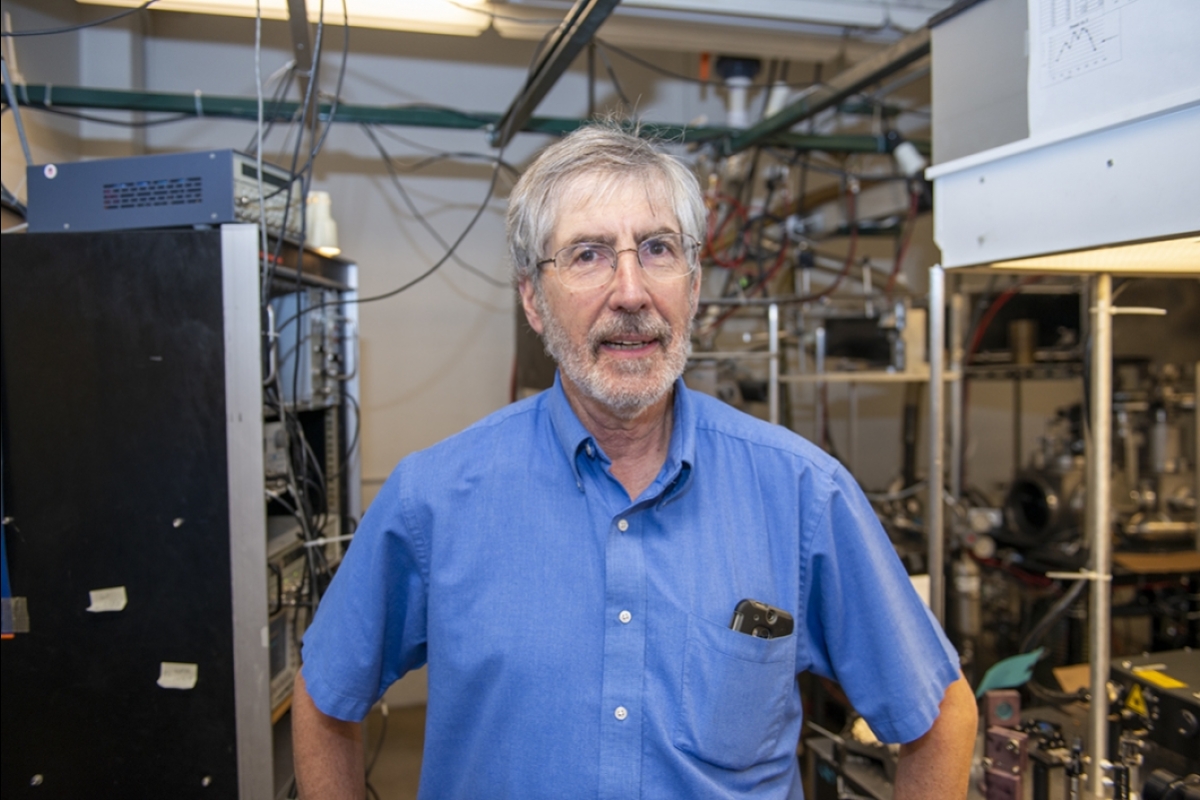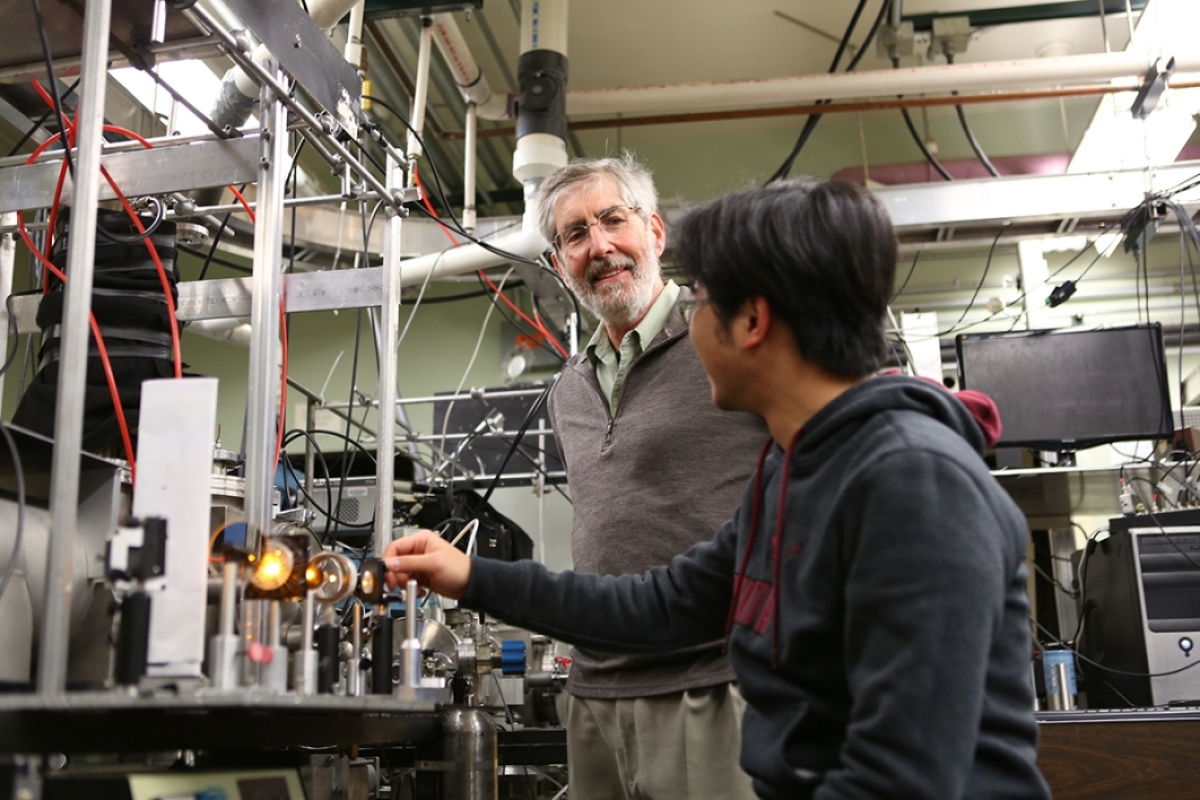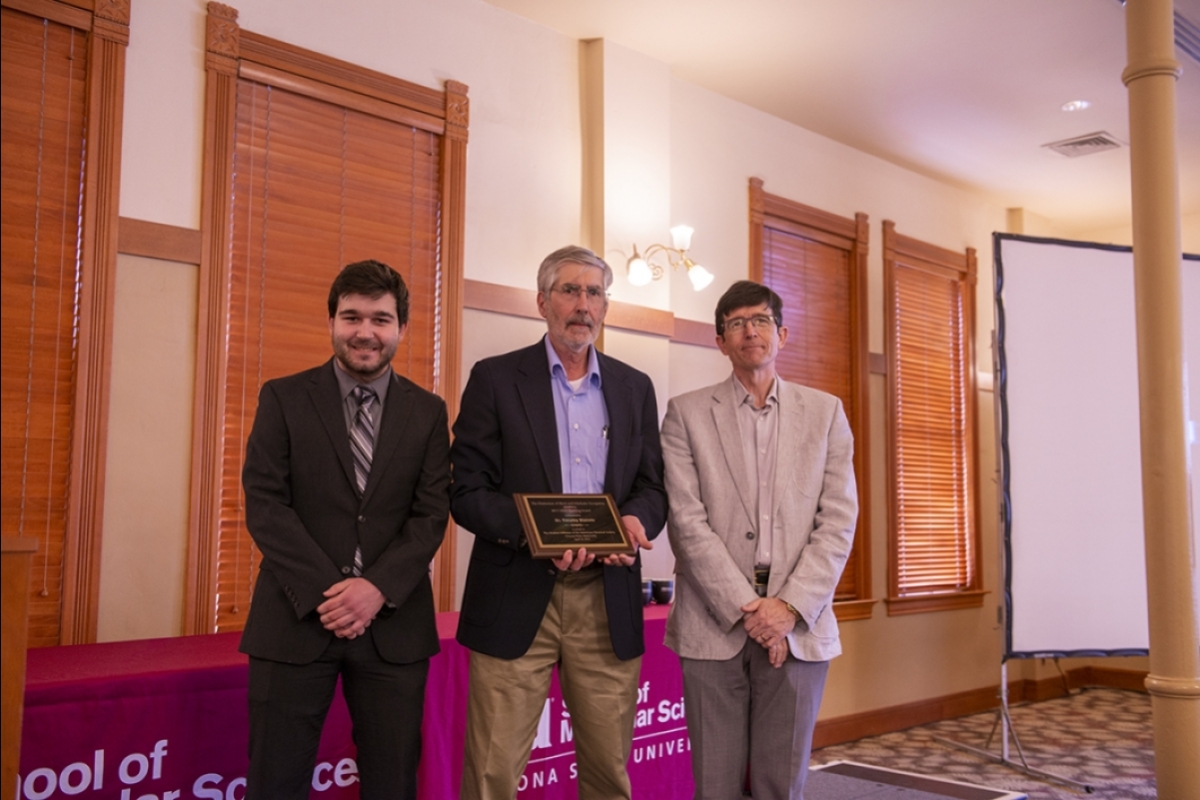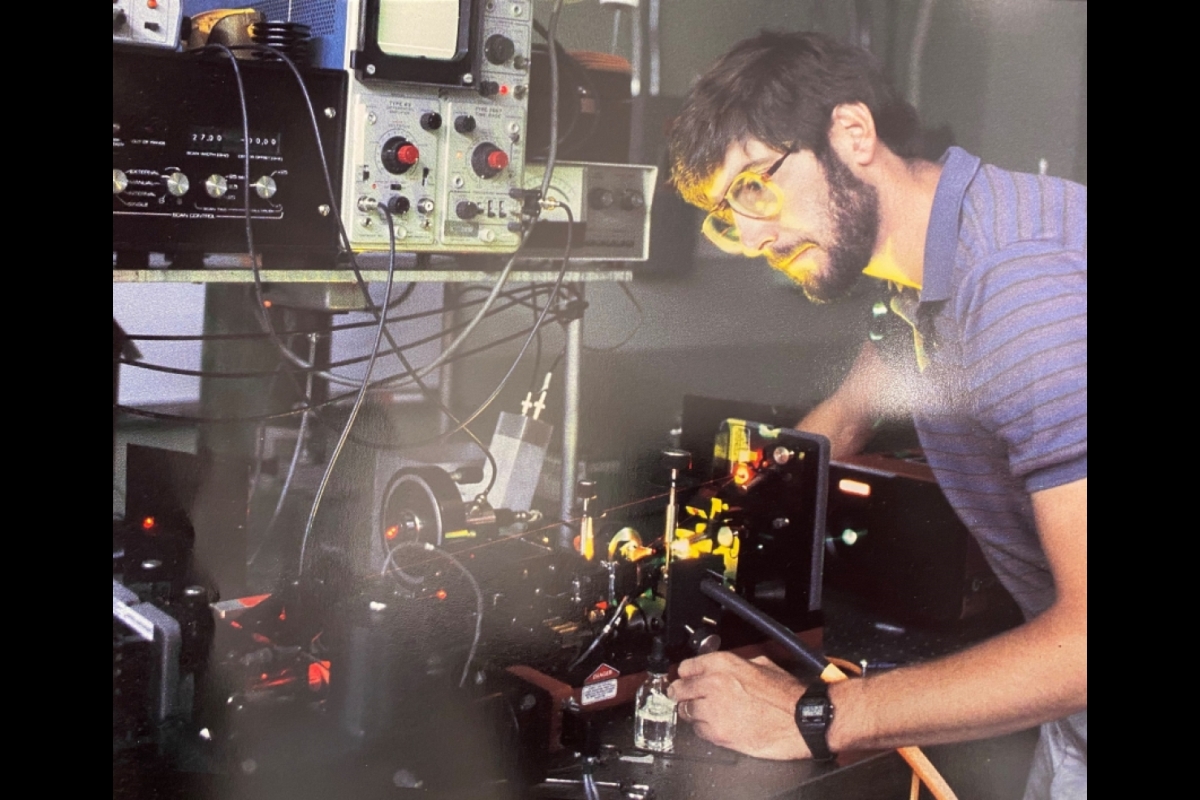ASU professor Tim Steimle retires after fulfilling career of nearly four decades
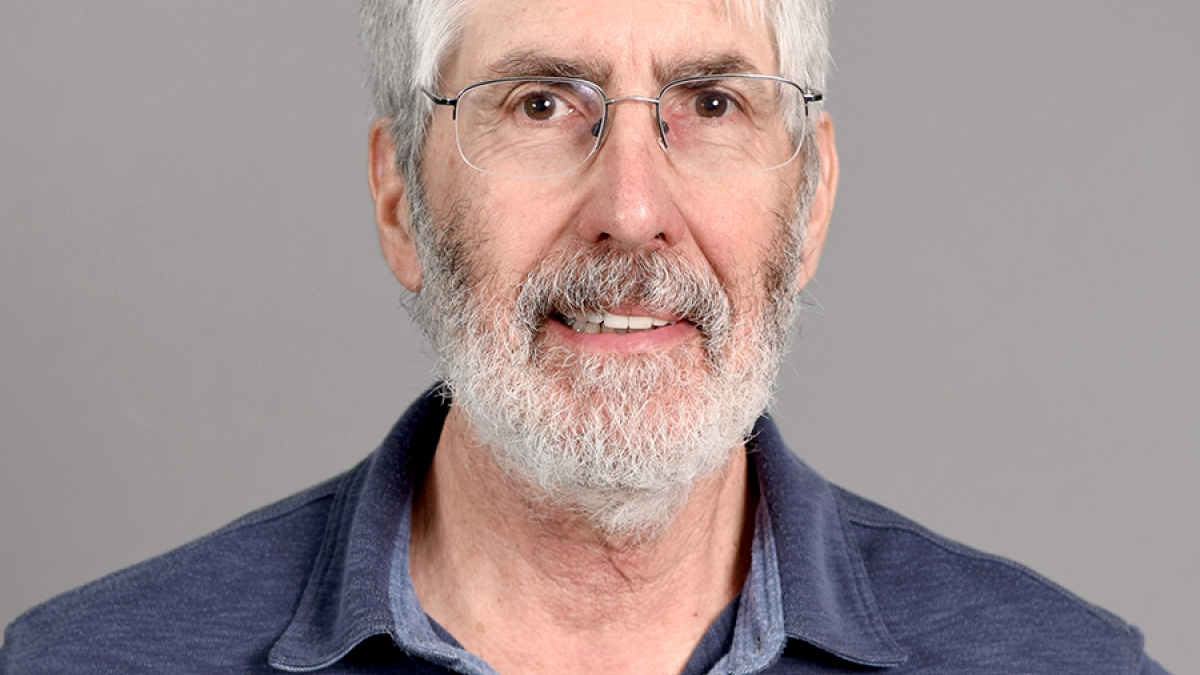
Tim Steimle
Professor Timothy Steimle has enjoyed a productive career at Arizona State University's School of Molecular Sciences. His research uses ultra-high resolution laser spectroscopy to obtain high accuracy measurements of the most fundamental properties of molecular systems, specifically dipole moment and magnetic g-factors with the goal of determining precise geometric and electronic structures of molecular models for metal-based catalysts.
Now, Steimle is looking forward to retirement after 36 years at the school. Steimle began working at ASU in 1985, the same year Windows 1.0 was released, the comic strip "Calvin and Hobbes" debuted, Mikhail Gorbachev became leader of the Soviet Union, New Coke was released and Michael Jordan was NBA Rookie of the Year.
If these events are familiar, you may be considering retirement as well. For those considering retirement, Steimle advises, “Talk to HR people early, look into phased retirement, and develop hobbies so retirement isn’t a shock.”
Steimle is following his own advice. He continues to pursue research interests through collaborations at Caltech and Emory University while enjoying other aspects of life. He recently bought a farm in Oregon where he enjoys outdoor activities such as biking and fishing. Steimle also recently completed construction of a pottery studio and is raising Christmas trees.
“When I came to ASU, there were only 41,000 students," Steimle recalls. “The school had a great reputation in material sciences and molecular research. It was an up-and-coming university with a supportive atmosphere and good research facilities and infrastructure. I hope I have made contribution to the visibility of (the School of Molecular Sciences) but now it’s time to give opportunities to the next generation of scientist.”
For those starting their careers, Steimle advises they focus on their passion. “You should think about the end result and the impact you want to have in science and life in general. Stay focused.”
A relative newcomer to ASU compared to Steimle, Assistant Professor Scott Sayers said, “Tim has had an incredibly productive career and established himself as one of the most respected high-resolution spectroscopists in the world. He has been an incredible mentor to me, and I value that I could always count on him for authentic and straightforward advice on a variety of scientific and nonscientific issues. I wish him a happy and relaxing retirement, free from the troubles of aligning laser beams.”
“Tim is a wonderful colleague and friend, and I will sorely miss bumping into him as he always had time for banter and always brightened my day," said longtime colleague and School of Molecular Sciences Professor John Kouvetakis. "Tim is the most enthusiastic and passionate scientist I know. He is an excellent experimentalist who loves the lab, and an inspiring teacher.”
Steimle credits others for their contributions to his career and success, as well as his transition to retirement.
“My mentor, the late John Brown from Oxford University, exemplified kindness and generosity with his time," Steimle said. "Here at ASU, Mort Munk was influential in my career. Ian Gould has been supportive arranging retirement, and the (school's) financial staff, Theresa, Kylie and Sarah, are all very helpful.”
“At ASU Tim developed a series of unique experimental techniques that put him at the forefront of ultra-high-resolution spectroscopy," said Gould, interim director of the school. "His work had broad impact, from the most fundamental studies of molecular property and structure to helping to understand the complex mechanisms of metallic catalysts. Tim was a wonderful colleague and friend to many of us; he was very much a central part of the (School of Molecular Sciences) chemistry community and will be missed. We congratulate him on a scientific life well-lived and wish him a long and happy retirement.”
More Science and technology

ASU-led space telescope is ready to fly
The Star Planet Activity Research CubeSat, or SPARCS, a small space telescope that will monitor the flares and sunspot activity…

ASU at the heart of the state's revitalized microelectronics industry
A stronger local economy, more reliable technology, and a future where our computers and devices do the impossible: that’s the…

Breakthrough copper alloy achieves unprecedented high-temperature performance
A team of researchers from Arizona State University, the U.S. Army Research Laboratory, Lehigh University and Louisiana State…


